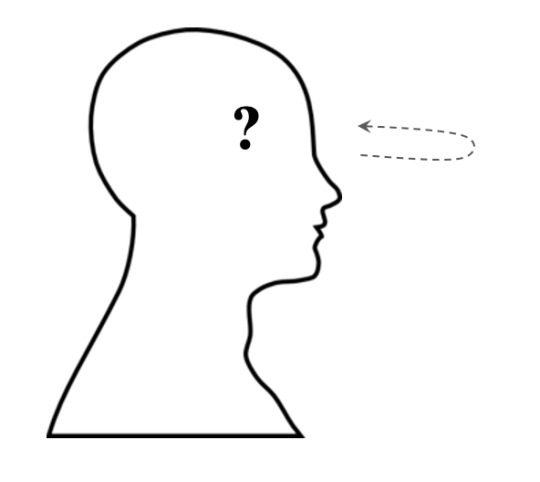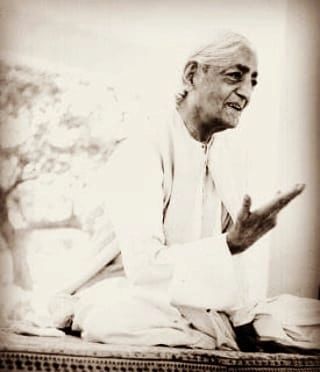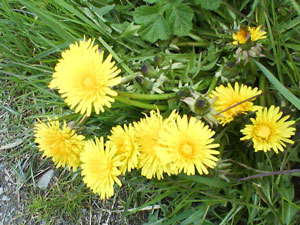#anatta
Text
I fade with the passing breeze
Or the setting sun
Or any shift in state that takes
A nudge
Or a push
Or the tick of a clock in need
Of winding
.
I am neither nothing
Nor everything
I am simply the act
Of becoming
#my writing#poetry#poem#creative writing#spirtuality#change#permanent impermanence#spiritual journey#ego death#selflessness#Anatman#anatta#spilled ink#poets on tumblr#writers on tumblr#writers and poets#quick write#nature
10 notes
·
View notes
Text
*Will Wood voice*
And if dreams can be wet, what does that say about nightmares?
I'll stay awake tonight
23 notes
·
View notes
Text
Ah yet another existential crisis that makes me question my spiritual beliefs. I struggle with the buddhist idea of no self or anatta saying there is no singular self that is unchanging and not dependent on other things to exist. But when I did practice advaita vedanta hinduism although I felt genuine connection, love, and truth I felt directionless in my day to day life. It was very hard to get information in English. Whereas Buddhism gave me more structure and insight.
Both worldviews contradict so do I believe in the atman and Brahman, that all of life is lila, a play, and reincarnation until moksha. Or do I believe all my experiences while intense are temporary and even if I go to a formless or heavenly realm after following hinduism eventually it will run out and I'll be caught in the cycle of rebirth until I realize enlightenment and attain nirvana. I'm still having trouble conceptualizing nirvana.
In buddhism it's your karma and habits that get reincarnated, not a fixed self or essence. Your personality is empty. In hinduism you change bodies like clothes until you recognize the truth of divinity and merge with Brahman. Your ego distracts you and hides the truth.
I've studied and practiced both for long periods of time but I feel so lost in between them. Which one to follow. Denying atman and Brahman feels like grief. Like missing a mother's warm hug. But also accepting hinduism means struggling to find structure and a niche to practice in. Lost in the waters of centuries of information and different traditions.
Just venting.
#the soup talks#spiritual questioning#buddhism#advaita vedanta#hinduism#anatta#atman#i always get confused and lost
15 notes
·
View notes
Text

57 notes
·
View notes
Text

Self-Inquiry Meditation
“Awareness that is usually directed toward an object of experience, either a specific single object or the whole field of objects, is instead directed back upon itself, where it is always already shining. Since awareness itself is the only thing that is not an object of awareness, this is the end of subject-object duality, the cessation of the division of mind and experience. This is mindfulness of no object, nondual awareness, and when immersed in it, this is therefore the cessation of suffering, the end of discontent and grasping and fear, and the source of true love and compassion.”
—Kokyo Henkel
https://kokyohenkel.weebly.com/uploads/1/2/7/4/127410773/three_types_of_zazen.pdf
3 notes
·
View notes
Text
"The Greeks were great seafarers, colonizing much of the Mediterranean and the Black Sea and becoming familiar with a great variety of cultures. This exposure to different customs and beliefs encouraged skepticism toward their own myths. From a Buddhist perspective, however, what is most striking about the Greek experience is how much it resembles the perennial situation of the anxious individual self, which is dimly aware that it is not self-existing or 'natural' but a social and psychological construct.
According to Walter Truett Anderson, anthropology's gift to the world — the realization that human beings create different kinds of cultures, which in turn create different kinds of human beings — is a deeply subversive idea, because if you absorb it you will begin to wonder who created it and why; you reflect on what it does to you, and you think about making some changes. 'And the more people there are working their way through some such inner thought process, the more culturally diverse, complex and unstable a society is likely to be.'"
- David Loy, from The Great Awakening: A Buddhist Social Theory, 2003.
#david loy#quote#quotations#anthropology#ethnography#ancient greece#social constructs#walter truett anderson#activism#buddhism#zen#politics#psychology#self#no self#anatta
19 notes
·
View notes
Text
what Is a living being?
[Two articles by Ajahn Amaro discussing the Buddhist meaning of Rebirth and related truths]In the Theravāda Buddhist world, the Sutta on Loving- Kindness is one of the best known, best loved, and most often recited of the Buddha’s discourses.
Wishing: In gladness and in safety,
May all beings be at ease.
Whatever living beings there may be;
Whether they are weak or strong,…

View On WordPress
#anatta#anicca#awareness#Buddhism#conscious experience#letting go#loving-kindness#metta#mindfulness#non-duality
3 notes
·
View notes
Text
* I am not a body. I am inhabiting or controlling a body.
* I am not my genetics. Those are part of the body.
* I am not my experience. I am having an experience.
* I am not my emotions. Emotions are the result of the body and the experience.
* I am not my instincts. My gut feelings are emotions.
* I am not my logic. The way the universe works is universal.
* I am not my thoughts. My thoughts are a narrative woven from emotion and logic.
* I am not my actions. My actions are artificially imposed, based on my thoughts.
What, then, am I?
2 notes
·
View notes
Photo

Everywhere society is conditioning the individual "Everywhere society is conditioning the individual, and this conditioning takes the form of self-improvement, which is really perpetuation of the 'me', the ego, in different forms. Self-improvement may be gross, or it may be very, very refined when it becomes the practice of virtue, goodness, the so-called love of one's neighbor, but essentially it is the continuance of the 'me', which is the product of the conditioning influences of society. All your endeavor has gone into becoming something, either here, if you can make it, or if not, in another world; but it is the same urge, the same drive to maintain and continue the self." — Jiddu Krishnamurti, Ojai, CA - 1955 #Anatta #Anatman (at New Haven Zen Center) https://www.instagram.com/p/Cmy78SULWzD/?igshid=NGJjMDIxMWI=
3 notes
·
View notes
Text
Liberation Here and Now, by Ayya Khema
Buddhist meditation: 'Liberation Here and Now', by Ayya Khema http://wp.me/pFy3u-1ot
When we hear or read the word ‘liberation’ (nibbana), we often get the idea that it is unattainable, otherworldly, reachable only by spiritual giants, and that it has very little to do with us. We do not have to look at it that way. Let us consider the three kinds of liberation—’signless’, ‘wishless’, and ‘voidness’ liberation. Signless liberation is attained by completely penetrating…

View On WordPress
5 notes
·
View notes
Text
Buddhism 202: Happiness Sandwiches, with Something in the Middle…
Buddhism 202: Happiness Sandwiches, with Something in the Middle…
If you’re looking for bliss, then you may be disappointed. Happiness for me is the reduction, and hopefully cessation, of suffering. Anything else is icing on the cake. Count your blessings. In other words, bliss is optional and perhaps not even desirable. After all, when your psychological pendulum swings too far in one direction, isn’t it bound to swing back to the other with equal force? It’s…

View On WordPress
#ahimsa#anatta#bliss#Buddhism#Eightfold Path#Four Noble Truths#happiness#Hardie Karges#Three Marks of Existence
3 notes
·
View notes
Text
The Reward of Doing
Daily writing promptIf you could have something named after you, what would it be?View all responses
The question of having something named after me is interesting! While recognition is a lovely thing, it’s not what motivates me. Building a personal brand or chasing fame isn’t my cup of tea. Honestly, if I had my way, there wouldn’t be anything named after me at all.
Photography by Raffaello…

View On WordPress
#Anatman#Anatta#attachment#awareness#Buddhism#Buddhist principles#Buddhist teachings#compassion#dailyprompt#dailyprompt-1893#Ethics#fame#fulfilment#Help#impermanence#knowledge#me#peace#Philosophy#Raffaello Palandri#recognition#self#suffering#support#take care#understanding
1 note
·
View note
Text
Can someone who knows about Buddhism explain anatta to me and how does it actually like. Fit with the concept of samsara and karma. Like. If there is no soul/self what is being reborn? Is it skandhas that are getting reborn? Obviously the body doesn't but are the mental skandhas the ones being reborn? And if they dissappear with the person's death what is being reborn? Like if karma follows the person into the next life, what exactly is it following?
Sorry if the questions are stupid I was skimming wikipedia pages for different religions to make my fantasy religion and then I got to Buddhism and got confused by anatta so then I spent the next hour looking into it but then I had even more questions. I didn't know shit about Buddhism two hours ago so explain to me like I'm five or something.
1 note
·
View note
Text
the rare vintage of bad movie that combines glorious visuals with incomprehensible themes infused with the most inspiredly terrible writing and editing decisions imaginable articulate my relationship to G-d better than I ever will the universe is immense and unknowable and I am easily distracted and the production design has its whole pussy pubes styled with pink glitter product out dancing in the studio moonlight
1 note
·
View note
Text
Understanding Spiritual Enlightenment and Nirvana
A Journey Beyond WordsThe quest for spiritual enlightenment is a journey that transcends mere words and enters the realm of profound inner transformation. In the West, enlightenment is often equated with a comprehensive understanding of one’s true nature. This interpretation focuses on the illumination of the self, its intricacies, and its connection to the larger universe. It’s a state of…

View On WordPress
#anatta#brahman#liberation#Moksha#nirvana#realization#samsara#spiritual awakening#spiritual enlightenment#Surrendering#Understanding
1 note
·
View note
Text

“When we think about ourselves, we activate a self-representation in the brain, a feeling of 'me.' But just because we have a feeling of 'me' in the mind does not mean that a real self exists separate from the realm of thought. For example, we can hold a compelling image of a superhero in our minds without it pertaining to anything real outside our imagination. Thinking about Superman does not make him exist. When we’re not explicitly thinking about ourselves, our sense of self vanishes and our mind-body continues to function just as well without it. The self, like Superman, is a mental creation, a story.”
—Kate Gustin, The No-Self Help Book
2 notes
·
View notes